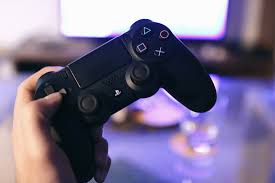Is Gaming Disorder a mental health condition? « Back to Questions List
|
Gaming disorder is mental health condition, says World Health Organisation (WHO). Spending too much time playing video games has been recognised as a mental health condition in the latest revision to the International Classification of Diseases (ICD ) which is a disease classification manual. The studies reveal that brain of video gamers get affected in the same way as that of a drug addict. When engaged in continuous gaming, certain pathways in the brains are triggered like in the case of drug addiction. The gaming leads to a neurological response that results in feelings of pleasure and reward and gradually pushes towards addictive behavior. According to ICD-11, compulsively playing video games comes under the category of addictive disorder. The classification confirms the fears of many parents. At the same time, it has led to controversies too. Those who oppose point out that the classification may unnecessarily brand many young video players as sick. They claim that more research and experiences are required to classify gaming disorder as a mental health condition. The International Classification of Diseases (ICD) is an international standard health tool for identification of diseases and health management. Presently ICD-10 is in force. The proposed classification, ICD-11 , which will be effective from January 1, 2022 . However, the proposed classifications were announced on June 18, 2018 by WHO to provide enough time to member countries to familiarize and arrange training for health officials. WHO expects that classifying gaming disorder as a separate addiction will help health officials, parents and governments to be alert and prevent risks. Normally, teenagers and young spend lot of time for video games. Since they are unable to understand the condition, generally they do not seek treatment. The classification will create increased awareness among parents and teachers to be more watchful. The organization does not consider all video gamers under mental disorder category. According to them, at present less than 3 percent of all video gamers come under the category and hence the disorder can be considered as rare. The classification was accepted by WHO based on the scientific evidence of the need and demand for treatment for game addicts on many parts of the world. The normal outcome of gaming disorder is that the affected child drops out of school and causes family structure to fall apart. In some cases, the affected persons become depressed and anxious. They get disillusioned which leads to even suicide. Once identified, the disorder is best treated with psychological therapies and in some extreme cases with medicines. Many psychologists state that the number of youth seeking help for compulsive gaming is showing increasing trend. Sometimes, gaming disorder can be connected with other health issues too. Many researchers are of the view that just like gamblers get excited by money, gamers derive happiness from points. They are also of the view that classification of gaming disorder as mental condition would help to strengthen treatment strategies. Irrespective of whether you support or oppose, if too much of gaming affects a person’s studies, socialization or work, then that person requires special care and attention to come out of the addiction. International Classification of Diseases (ICD) Diabetes: General Facts You Ought To KnowWhat are the diseases caused by Hypertension? |

